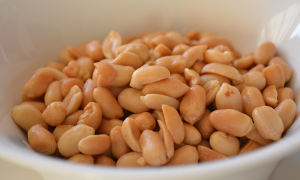Shining the Spotlight on Surging Elderly Mental Illness
ShieldMySenior.com is a new resource for senior citizens and their caregivers. They realized there was no central resource for aging adults who were seeking to stay independent as long as possible. Their goal is to fill that void by offers some helpful suggestions. One of them is that elderly mental health is extremely important to a senior’s overall well-being. Unfortunately, many of today’s seniors are struggling to get adequate help and support. Physicians, caregivers, and family members should have concern for geriatric mental health issues
Mental illness in the elderly often gets confused with symptoms of aging. But, there are important differences that can signal a more serious mental health condition. Caregivers should understand the symptoms of mental illness and learn how best to support senior mental health.
PREVALENCE OF MENTAL HEALTH ISSUES IN TODAY’S SENIORS
All ages can suffer from mental health issues. But, those 55 or older are more at risk for mental health concerns than the younger population. In fact, 20% of people in this age range suffer from some type of mental health concern. Anxiety or depression are among the most common.
Men over 85 are most at risk for suicide than younger generations or women. Additionally, about 45 out of every 100,000 elders commit suicide, which is most often the result of an elderly mental health issue.
The facts are scary, and it gets more concerning as our population ages. By 2050, it’s estimated that the world’s elderly population will double its current size. This leaves more seniors susceptible to mental health issues (Klonopin Online).
THE BIG PROBLEM
The biggest problem with mental illness in the elderly is, perhaps, the things we don’t understand about it. There are often stigmas associated with mental health. For example, portrayals we see on television or in movies make those with mental illness seem frightening. This leads to a lack of desire to talk about mental illness, and instead, it gets swept under the rug.
Seniors, additionally, have to confront ageism. People often dismiss concerning behaviors in seniors as effects of aging. In reality, there are important differences between aging and elderly mental health concerns. Not knowing the differences can seriously affect a senior’s well-being.
THE DIFFERENCE BETWEEN MENTAL ILLNESS AND AGING
It’s true that some symptoms of mental illness and aging can overlap. But, it’s important to be aware of differences between age and an elderly mental illness. If symptoms aren’t caught early enough, a senior is at high risk for severe anxiety, depression, or even suicide.
Many seniors don’t feel comfortable speaking with their primary care physicians about their concerns. Instead, they fear their doctors downplaying their symptoms. Of those who do speak up, about 50% of mental health disorders in the elderly still go diagnosed.
Anxiety and depression are common in seniors. But, doctors frequently pass symptoms off as nothing more than normal aging. Early detection of mental health issues in seniors is vital to receiving proper care and treatment. Read more



 Suzanne Allard Levingston for The Washington Post shared the following story.
Suzanne Allard Levingston for The Washington Post shared the following story. Con for Care located in Wheaton, IL,
Con for Care located in Wheaton, IL,  The Anti-Amyloid Treatment in Asymptomatic Alzheimer’s Disease (A4) Study is currently recruiting healthy adults between the ages of 65 and 85 who have no cognitive impairment, to test an experimental medication that may prevent or delay the onset of Alzheimer’s dementia. If you fit these criteria or know someone else who does, please call 1-844-A4STUDY (
The Anti-Amyloid Treatment in Asymptomatic Alzheimer’s Disease (A4) Study is currently recruiting healthy adults between the ages of 65 and 85 who have no cognitive impairment, to test an experimental medication that may prevent or delay the onset of Alzheimer’s dementia. If you fit these criteria or know someone else who does, please call 1-844-A4STUDY ( The use of essential oils for health and wellness is a practice that is becoming more and more common in homes all over the world. However, every essential oil has its own unique properties, so it’s important to learn what each can do.
The use of essential oils for health and wellness is a practice that is becoming more and more common in homes all over the world. However, every essential oil has its own unique properties, so it’s important to learn what each can do. Lavender has been used for hundreds of years as a way to treat insomnia, restless leg syn-drome, and other sleep-related problems.
Lavender has been used for hundreds of years as a way to treat insomnia, restless leg syn-drome, and other sleep-related problems. Lavender oil can be used to soothe and prevent headaches. Whether you suffer from mi-graines or other headache types such as gastric, nervous, general, sinus, or tension, this oil may be able to provide relief.
Lavender oil can be used to soothe and prevent headaches. Whether you suffer from mi-graines or other headache types such as gastric, nervous, general, sinus, or tension, this oil may be able to provide relief. Lavender is calming, anti-convulsive, and a sedative that is used to reduce anxiety and depres-sive feelings.
Lavender is calming, anti-convulsive, and a sedative that is used to reduce anxiety and depres-sive feelings.

